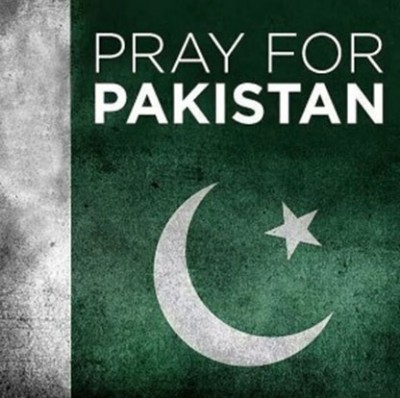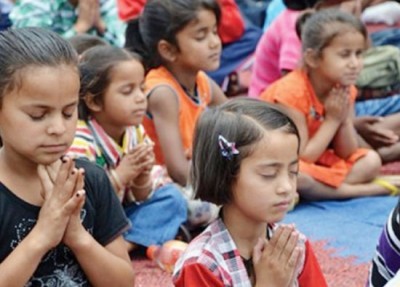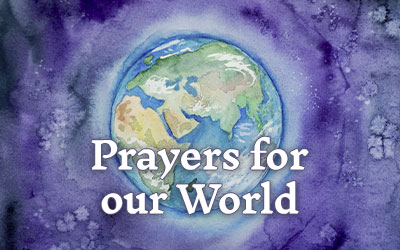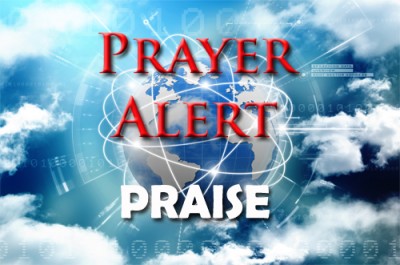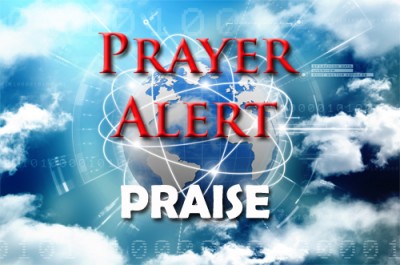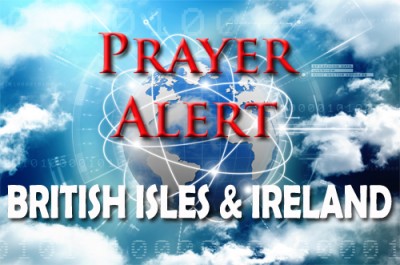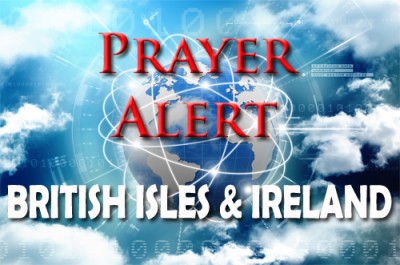Christian High School Student Killed in Pakistan
The father of a 17-year-old Christian who was killed in a school in Pakistan by at least one Muslim classmate said the attack was religiously motivated, a charge that police dispute.
Ilyasab Masih (father of the victim) stated that a teacher had set sent a strong non-verbal message of anti-Christian hostility by hitting and humiliating his son, Sharoon Masih, the day before the assault on Aug. 27.
Pray: for God’s comforting presence over all those grieving the loss of Sharoon Masih;
Pray: that the authorities will take action against the unjustified killing, and the perpetrator will be brought to justice.
Christian Father of Two in Pakistan Sentenced to Death for ‘Blaspheming’
Prophet of Islam
Christian father of two in Pakistan has been sentenced to death for blaspheming Islam’s prophet in a phone text even though he is illiterate, sources said.
Nadeem James, 27, was charged in July 2016 in Gujrat District after a friend, Yasir Bashir, complained to police that he received a poem via WhatsApp instant messaging that was derogatory towards Muhammad and other revered Islamic figures. Court sentenced James to death on Thursday (Sept. 14), as per sources.
Pray: that God would strengthen and comfort James and his family members during these trying times;
Pray: that the authorities will take measures to amend these stringent laws;
Pray: that authorities would intervene and release James;
WEA RLC Prayer News | Religious Liberty Prayer News
On Oct 7th, there will be a children's intercession prayer conference with 1000 children.
All the children come from different orphanages and different churches too.
In this conference, the children participate in praising, worshiping, preaching and praying together for all the nations.
Please pray for our children’s prayer conference.
And please pray for our country too.
We believe that by our children's prayers God will do a great thing and a new thing in our country again.
Thanks and with much blessing,
Nandar
Please join us in praying for the first annual Global Prayer Gathering held by the Seed Company on October 15th, 2017. The gathering is focused on celebrating God’s goodness in accelerating the Bible translation movement over the past 25 years.
The Global Prayer Gathering also calls the Bride of Christ to pray and join Vision 2025, the effort to reach the remaining 1,671 languages that completely lack Scripture by the year 2025.
The gathering will both take place at Pantego Bible Church in Ft. Worth, TX and be livestreamed globally on October 15th.
Come to the [FREE] event or live stream it from anywhere. Will you join us?
Pray for God to bring international prayer leaders to the gathering who will dramatically help with Vision 2025.
Pray: for the worship leaders and speakers for the gathering.
Pray: for God to both guide the selection of worship leaders and speakers and bless their efforts as they begin to prepare for the gathering.
Pray: for blessing and favor upon Pantego Bible Church as they host the gathering and have given generously towards the cause.
Pray: for unity and support amongst other Dallas/Ft. Worth churches for the event.
Pray: forspiritual protection, unity, wisdom, and divine creativity over the Seed Company prayer mobilization team as they lead the event.
Pray: that God would usethe design of the website and featured content to lead many into praying for Vision 2025.
Pray: for the development of the Bible translation prayer app. We are believing for it to be running smoothly by October 15th.
Pray: for the global marketing and networking for the prayer gathering. We are praying for 1,600 attendees in person and for one million worldwide to view the event online live or after the gathering.
The Spirit of God is moving like a mighty, rushing wind in the Bible translation movement, and it is time for the entire body of Christ to play its part in this historical moment.
It is time for you to become a part of His solution in rescuing the nations out of darkness with the light of His Word. It is time to Pray for ZERO.
Samuel E. Chiang
President and CEO - Seed Company
“God is our refuge and strength, an ever-present help in trouble. Therefore we will not fear, though the earth give way and the mountains fall into the heart of the sea, though its waters roar and foam and the mountains quake with their surging.[c].. .Nations are in uproar, kingdoms fall; he lifts his voice, the earth melts…He makes wars cease to the ends of the earth. He breaks the bow and shatters the spear; he burns the shields[d] with fire… He says, “Be still, and know that I am God; I will be exalted among the nations, I will be exalted in the earth. The Lord Almighty is with us; the God of Jacob is our fortress.” (from Psalm 46)
Having witnessed with our facilitation teams the Lord bringing an end to eight wars and ethnic conflicts over the last 20 plus years when His people come together in united, focused prayer, I have full confidence that we could see Him do the same in the current, very scary stand-off with North Korea. We must, however, not lose our sense of intercessory concentration on this most urgent international security threat. God will use our united prayers even more than THAAD high altitude missile defense systems to raise up a shield of 24/7 protection, a virtual fortress so that we do not have to fear as the above psalm tells us. He can make this conflict subside and enable a peaceful solution to be reached if we will continue to cover it in ongoing intercession.
Here is the latest on this worsening crisis:
1) The problem with the military option
An article in the Washington Times today offers this perspective:
“The most detailed analysis of all possible scenarios ranging from a “crushing U.S. military strike to eliminate Pyongyang’s arsenals of mass destruction, take out its leadership, and destroy its military” to “removing chairman Kim Jong-Un and his inner circle, most likely by assassination,” is provided by Mark Bowden in The Atlantic. His conclusion: All these options not only will carry huge human and material costs, but their end results will turn both the regional and the global situation from bad to worse.
Gregory Treverton, the former chair of the U.S. National Intelligence Council, agrees that “military options against the North’s nuclear arsenal suffer from two problems: they might not succeed, and Pyongyang has devastating retaliatory options.” (Washington Times, Sept 29)
Let us pray that these violent military options will not have to be used. They could unleash a destructive retaliation that would cause the deaths of many hundreds of thousands if not millions of people.
2) The danger of provocative actions
“Japanese Defense Minister Itsunori Onodera warned Friday that North Korea may engage in dangerous provocations next month. The Japanese defense minister’s call for caution came after South Korean National Security Adviser Chung Eui-yong made a similar warning the day before.
There are several dates North Korea might choose to mark with its own special brand of fireworks. Oct. 9 is the anniversary of North Korea’s first nuclear test, Oct. 10 is the anniversary of the founding of the North Korean communist party, and Oct. 18 marks the start of the twice-in-a-decade Communist Party Congress in China.” (DailyCaller.com, Sept 29)
Pray that the North Korean regime will be held back from launching provocative operations due to Kim Jong Un’s fear of losing face with his own people or as part of these upcoming anniversaries.
3) China’s key role and the important use of sanctions
Successive rounds of U.N. sanctions have cut off more than 90 percent of North Korea’s publicly reported exports — including coal, iron ore, seafood and, most recently, textiles — and have restricted the regime’s ability to earn foreign currency income by sending workers abroad.
China accounts for roughly 85 percent of North Korea’s external trade and is seen by many as the key to forcing Pyongyang to at least freeze its nuclear and missile programs.” (Washington Post, Sept 29th)
“China and the United States have developed a closer relationship due to North Korea’s antics, which former U.S. Ambassador to China Max Baucus describes as genuinely disgusting and frustrating to Chinese President Xi Jinping.” (Breitbart, Sept 29)
China is absolutely the key factor for the peaceful resolution of this crisis. Pray that China and the USA will work closely together to solve this great international security problem. Pray that China will continue to effectively shut down their trade and business connections with North Korea and that any smuggling or bypassing of this new embargo will be strictly prevented so that the North Korean regime’s economic ability to wage war is choked off.
4) The perilous connection with Iran
“Failure to stop North Korea will almost certainly lead to a failure to stop Iran. In the past, Pyongyang has transferred nuclear and missile technology to Iran, resulting in similar missiles appearing in military parades in both capitals. Iran is now much more developed in science and technology, and is likely to improve on North Korean systems.
Furthermore, Iran can keep within all the restrictions imposed on it by the nuclear deal and still develop and test its nuclear weapon and missile program in North Korea.” (Algemeiner.com, Sept 29th)
Let’s pray that the relationship of North Korea and Iran will be cut off and that as North Korea is dealt with, Iran’s capacity to build up nuclear weapons and missile program will also be curtailed through similar sanctions and united actions by the international community.
Thanks for continuing to cover this alarming situation in your prayers.
John Robb, IPC Chairman
Extending archbishop’s youth charity
29 Sep 2017Dr John Sentamu said it has never been so important to support young people as he launched a major fundraising drive to extend the reach of his youth trust almost a decade after it launched. The Youth Trust seeks to ‘change our world for the better’, and has supported more than 50,000 pupils in 450 schools since 2008. It has now embarked on a drive to raise £375,000 to extend leadership courses for those living in the top 20% of the most deprived areas across the north of England. That means reaching an additional 15,000 youth from disadvantaged communities, in 300 primary and secondary schools, in the next eighteen months.
500,000 to take Bibles to school
29 Sep 2017About 500,000 public school students, from all fifty US states, will join the Focus on the Family's Bring Your Bible to School day on 5 October. This is the fourth such annual student-led religious freedom event. Many Christian students feel there is unspoken pressure on them to stay silent about their faith. Others report overt efforts to silence them from presenting their Bible-based viewpoints in class discussions or assignments, even though the First Amendment recognises the rights of students to talk about their faith and read their Bibles outside classroom time. This day gives Christians the chance to show how their faith is an important part of who they are. 356,000 students participated last year, with Alliance Defending Freedom offering students free legal representation if their rights were violated at school.
Friday Focus: praying for our communities
29 Sep 2017Jesus encourages us to love the people around us: our neighbour, a stranger on the bus, a shop assistant. This weekend - the National Prayer Weekend - provides an opportunity to show God’s love to people in our communities by asking if they have anything they want us to pray for.
(Emily Owen, National Prayer Weekend)
Intercessor Focus: Brexit issues
29 Sep 2017On 22 September Theresa May gave the EU the UK's strategy for Brexit, but by the end of the fourth round of Brexit talks a week later there was little sign of compromise on either side. Pray for agreement on broad-minded non-disruptive changeover arrangements which will benefit both the EU and the UK. The Prime Minister said a transition period could be around two years, during which time access to the single market would continue on current terms. Pray for negotiators to move forward positively and speedily to construct workable EU-UK relationships during and after Brexit. She also proposed a ‘bold new security agreement’ between the UK and the EU. Pray for a withdrawal that continues to honour the peace process in Ireland and avoids a hard border. On trade, the PM said there was no need to impose tariffs where there are none now. Pray for a transition that doesn’t adopt existing models, but rather provides better stability for businesses and workers.
